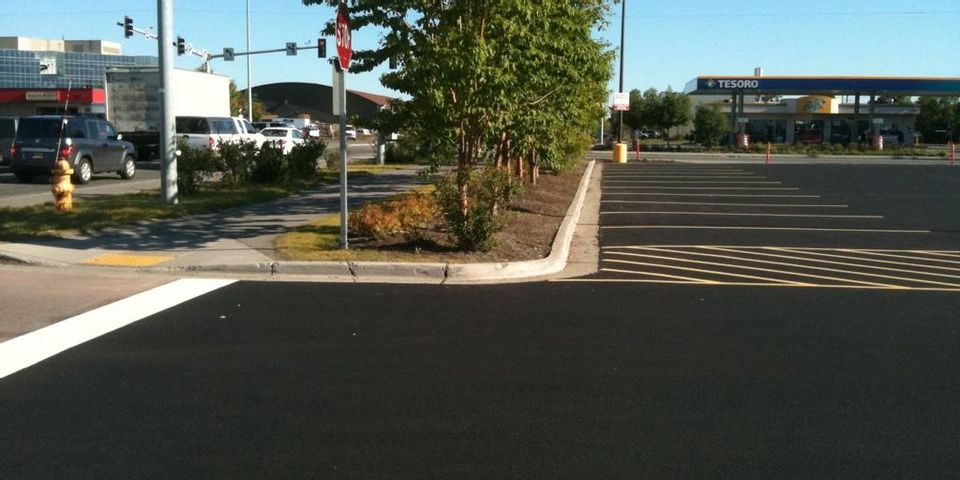5 Factors to Consider When Using Rock Salt or Deicers on Asphalt

Unlike concrete, it has been suggested that cured asphalt is more tolerant to damage from the use of rock salt or chemical deicers used to remove snow and ice. However, there are specific reasons to use rock salt and deicers sparingly. Here are some factors to consider when deciding between salt and chemical deicers and hiring a commercial snow and ice removal company to keep your parking lots and sidewalks in top notch condition this winter.
5 Facts About Using Salt and Deicers on Asphalt.
1. Rock salt and deicers are less damaging to cured asphalt.
Salt and deicers can eat away and degrade concrete. When applied to cured asphalt, however, such chemicals can be used to eliminate ice and snow if used properly and sparingly, but be aware they could cause future damage.
2. Rock salt and deicers can exacerbate the cracks and potholes in asphalt.
Potholes and cracks in asphalt are caused by the presence of water within the road and the expansion and contraction of water as it goes through the repetitive freezing and thawing cycle. While salt and deicers do not cause potholes in asphalt, their presence can exacerbate the effects of the freeze-thaw cycle when applied to asphalt that already has potholes or cracks and create an even bigger problem.
3. Chemical runoff can be detrimental to soil and plant life.
 While cured asphalt may be able to stand up to rock salt and deicers, such chemicals are toxic for soil and plant life. When using salt and chemicals to get rid of snow and ice, try to contain its use to areas where asphalt is bordered by a curb, or on an incline where chemical runoff can be directed towards a safe drainage area and not into the storm drain system.
While cured asphalt may be able to stand up to rock salt and deicers, such chemicals are toxic for soil and plant life. When using salt and chemicals to get rid of snow and ice, try to contain its use to areas where asphalt is bordered by a curb, or on an incline where chemical runoff can be directed towards a safe drainage area and not into the storm drain system.
4. Salt and deicers are corrosive to metal.
While it can be challenging to avoid these chemicals while on the road, exposure to them in driveways and parking lots can be problematic for vehicles and tracking inside buildings. It’s essential to use these chemicals sparingly in residential areas and to be sure to rinse chemicals away after they have melted snow and ice.
5. Sunlight melts snow and ice faster on asphalt than on concrete.
Darker colored materials absorb more heat from sunlight than lighter-colored materials. Even when temperatures are exceptionally low, as long as the sun is shining on asphalt, it’s likely to absorb enough heat to melt snow and ice naturally. Keep this in mind and try to avoid using salt and deicing chemicals on unusually sunny days during the winter.
If you have to deal with snow and ice throughout the winter, consider turning to a professional for help. Ron Webb Paving and Snow Removal, Inc. is a commercial snow removal company serving commercial properties in Anchorage, AK, and the surrounding areas. For more information, visit their website or call them at 907-349-3724.
About the Business
Have a question? Ask the experts!
Send your question

